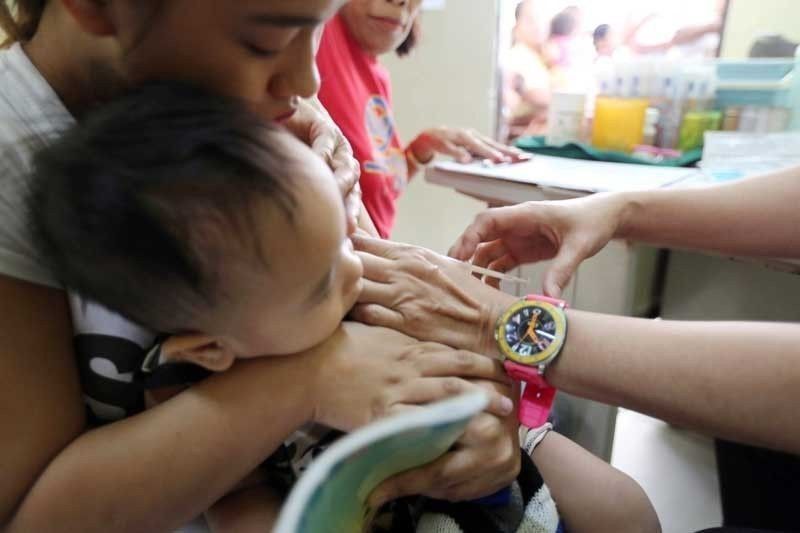Pandemic causes drop in routine immunizations in Philippines

MANILA, Philippines — The Department of Health on Monday said it saw a decrease in the number of Filipino children who received routine immunization in 2020, citing factors related to the COVID-19 pandemic.
Health Undersecretary Maria Rosario Vergeire said the figure last year was at 61.5% of the eligible population, or around 1.3 million. This was down by 7.6% from 69.1% in 2019.
"This is more than 30% below the national target," she said in an online briefing, "despite vaccination being available and accessible even during community quarantine periods."
The official said parents were hesitant to leave their homes and have their children vaccinated because of the risk of exposure to COVID-19.
Many health workers who were supposed to be vaccinators were also unavailable after being tapped to help in the country's pandemic response, Vergeire added.
DOH, however, said it could not "solely attribute the decreased trend in vaccine coverage" to COVID-19, noting that vaccine acceptance in the country has already been unstable.
Vergeire cited a 2015 study that showed 81% of Filipinos strongly agreeing that jabs are safe and effective. By 2018, she said vaccine confidence dropped to 21%.
A Philstar.com report has noted how the Dengvaxia controversy in 2017 sowed further public distrust of vaccines despite no proof that deaths attributed to the vaccination program were caused by the dengue vaccine.
READ: Dengvaxia scandal haunts Philippines' COVID-19 vaccine rush
Data from the DOH showed that full immunization rates in child population were as high as 85.6% in 2010, dropping to 66.2% in 2018, and down further to 52.7% the year after that.
Joining the forum was Dr. Rabindra Abeyasinghe, the World Health Organization's representative to the country. He said the DOH, along with the interior department as well as local governments should work to reach more people for inoculation efforts.
Vergeire admitted that getting personnel for non-COVID vaccinations "is some for of a challenge" for the country's health system. For this, government is looking to hire more medical personnel and tap the private sector to expand coverage in the country.
"Even though we were able to identify those health workers that will be managing COVID [and] non-COVID vaccinations, these are still the same set of candidates that we have at the local level," she said.
In other vaccination programs, Vergeire said 90.3% or 8.54 million children were inoculated against measles-rubella out of the targeted 9.46 million.
Some 87.4% or 6.05 million, meanwhile, received the oral polio vaccine against the target of 6.91 million.
"Vaccines bring us closer to a world where no one suffers or dies from a vaccine-preventable disease," the health official said. "Vaccines that are used in routine immunization have been backed up with decades of research, and established system of delivery and monitoring."
- Latest
- Trending


























